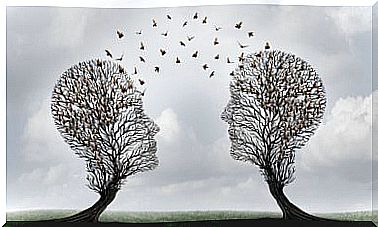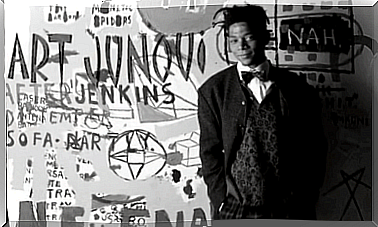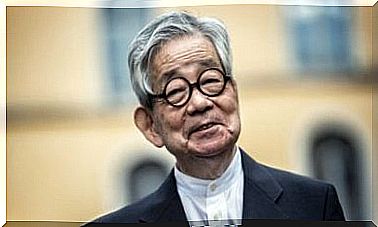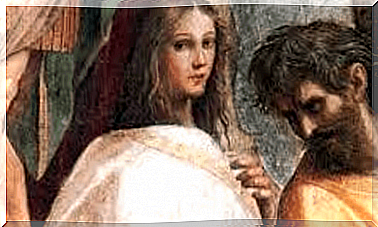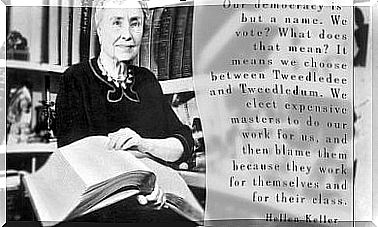7 Fabulous Phrases By Umberto Eco

Umberto Eco’s phrases are very sharp and, at times, even scathing. They perfectly reflect his critical spirit and refined intellect. This Italian philosopher and writer became famous throughout the world for his semiological works and for his famous novel The Name of the Rose .
There is a lot of irony and wit in Umberto Eco’s phrases. In fact, his intellectual life always moved in those coordinates. Not for nothing was he one of the most notable members of the College of Pataphysics, defined as “the science of imaginary solutions.”
This intellectual was deeply critical of religion and of the new phenomena of communication through the Internet. Almost all his life he was dedicated to teaching and he was always recognized as an excellent teacher. These are some of the most remembered Umberto Eco phrases.

1. The books
There are many phrases by Umberto Eco dedicated to books and reading. This is one of them: “ Books are not made to be believed, but to be subjected to research. When we consider a book, we should not ask ourselves what it says, but what it means ”.
It is wonderful that a man devoted entirely to letters is the one who affirms that books are a working material and not an object of worship. They are not a finished product either, but the basis on which we make our own interpretations.
2. The real hero
This is one of those phrases by Umberto Eco that reveals his critical and, at the same time, playful spirit. It goes like this: “ The true hero is a hero by mistake. He dreams of being an honest coward like everyone else ”.
What he means here is that genuine heroism is not born of that superlative ego that leads some to attempt feats. Rather, there are situations in front of which it is impossible to remain indifferent, although that is what is wanted deep down. That urgency, unwanted, is what leads to true heroic deeds.
3. One of Umberto Eco’s phrases about the press
Umberto Eco was a press man . He worked for a long time for the Italian radio and television, as a cultural editor. He also collaborated with various newspapers in Europe. So when he talked about the media, I knew what he was talking about.
One of his sentences in this regard says: ” It is not the news that makes the newspaper, but the newspaper that makes the news and knowing how to put together four different news items means proposing to the reader a fifth story .”
4. Understand the other
This is one of those beautiful phrases by Umberto Eco that shows his clearly humanistic and profoundly democratic spirit. He points out the following: ” Trying to understand the other means destroying the clichés that surround him, without denying or erasing his otherness. “
The phrase is an exaltation of difference and respect for the other. If we want to understand someone, the first thing is to shed our prejudices around him. The second is to accept that it is different and not try to reduce it to our own codes or terms.
5. Constant change
Although it has been said many times that life and human beings are in permanent change, the truth is that human beings often resist it. We fear that things will be and then cease to be. Sometimes, we want everything to stay the same forever.
Faced with this, Eco says the following: “ If you interact with things in your life, everything is constantly changing. And if nothing changes, you are an idiot ”. It is particularly interesting that he defines interaction as the factor that introduces changes in life.
6. Fear and courage
In this sentence, although it is very simple, Umberto Eco shows that he knows in depth human nature and the effect of affective and emotional interaction between people. He says: ” Nothing gives a fearful man more value than the fear of another. “
In this statement, he shows how fear, in the person who feels it, is relativized depending on the attitude of the other he faces. If the opposite attitude is reckless, it is surely intimidating. But if, on the contrary, the other shows more fear, this serves as a spur to embolden him.

7. The thought of death
With his usual irony, Umberto Eco gives us a beautiful reflection on death. On this he points out: ” It is necessary to meditate early and often on the art of dying, to be successful in doing it correctly only once. “
It means that if the reality of death is not accepted or consciously addressed, we will probably have to “die many times” to understand it. In one way or another, death gives life an essential meaning.
When Umberto Eco died in 2016, he left a request in his last will: that no tribute be paid to him for the next 10 years. He wanted to be recognized for the validity and validity of his work, not for social conventions. By faith you will.

